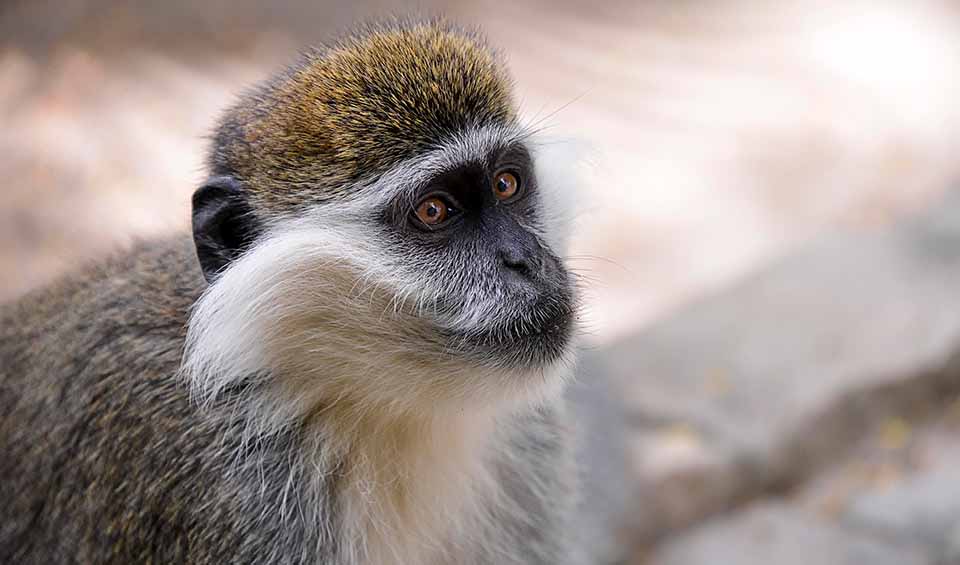A lively and adaptable Old World monkey native to the savannas, woodlands, and river valleys of northeastern Africa, particularly in Ethiopia, Sudan, Eritrea, and Djibouti. The grivet is known for its agile movements, expressive face, and social nature. With its mix of greenish-brown fur, pale underparts, and a distinctive white fringe of hair framing its dark face, the grivet is both striking and full of personality.
Grivets are medium-sized monkeys, but males are typically larger than females. Their faces are black with a white brow and beard, giving them an intelligent, alert expression. Unlike some monkeys that are more forest-bound, grivets are highly adaptable and often found near water sources, especially in drier habitats.
These monkeys are diurnal, meaning they are active during the day, and they spend most of their time on the ground or in low trees, foraging for food. Grivets are omnivorous, with a diet that includes fruits, seeds, leaves, flowers, insects, and even small animals or bird eggs when available. Their ability to eat a wide variety of foods and thrive in different environments makes them successful survivors in a changing landscape.
Socially, grivets live in groups (troops) of 10 to 50 individuals, made up of multiple adult females, their young, and a few dominant males. These groups are tightly knit, with strong bonds formed through grooming, play, and vocal communication. Like other Chlorocebus monkeys, grivets use a range of calls and body signals to alert each other to predators or maintain group cohesion. They are quick and cautious, with keen senses that help them detect threats like birds of prey, snakes, and carnivores.
Distribution
 Djibouti
Djibouti Eritrea
Eritrea Ethiopia
Ethiopia South Sudan
South Sudan Sudan
SudanAnything we've missed?
Help us improve this page by suggesting edits. Glory never dies!
Suggest an editGet to know me
Terrestrial / Aquatic
Altricial / Precocial
Polygamous / Monogamous
Dimorphic (size) / Monomorphic
Active: Diurnal / Nocturnal
Social behavior: Solitary / Pack / Troop
Diet: Carnivore / Herbivore / Omnivore / Piscivorous / Insectivore
Migratory: Yes / No
Domesticated: Yes / No
Dangerous: Yes / No




